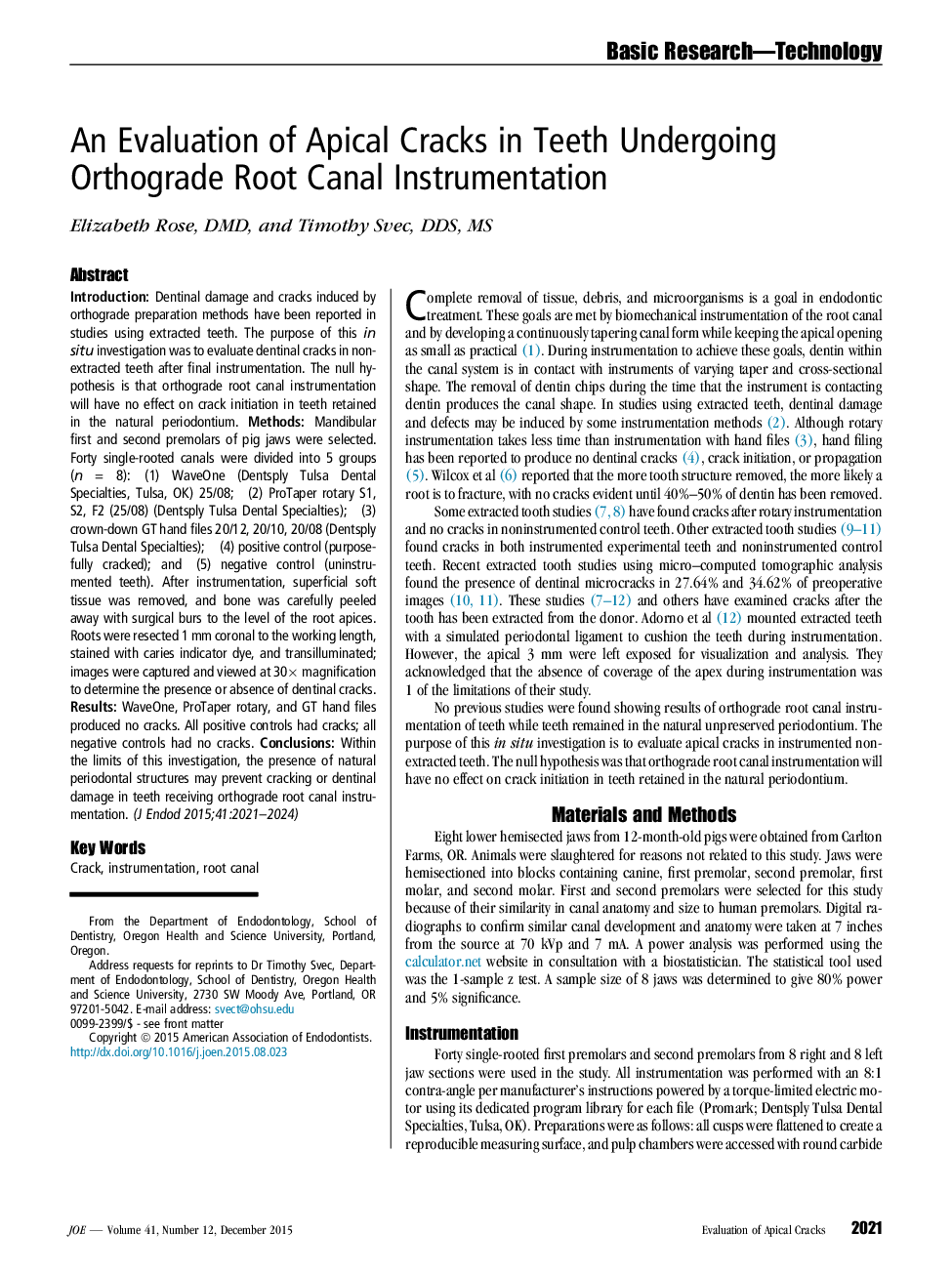| Article ID | Journal | Published Year | Pages | File Type |
|---|---|---|---|---|
| 3150226 | Journal of Endodontics | 2015 | 4 Pages |
•Instrumentation in teeth encased in natural periodontium resulted in no crack formation.•Overinstrumentation resulted in crack formation in all control teeth.
IntroductionDentinal damage and cracks induced by orthograde preparation methods have been reported in studies using extracted teeth. The purpose of this in situ investigation was to evaluate dentinal cracks in nonextracted teeth after final instrumentation. The null hypothesis is that orthograde root canal instrumentation will have no effect on crack initiation in teeth retained in the natural periodontium.MethodsMandibular first and second premolars of pig jaws were selected. Forty single-rooted canals were divided into 5 groups (n = 8):(1) WaveOne (Dentsply Tulsa Dental Specialties, Tulsa, OK) 25/08;(2) ProTaper rotary S1, S2, F2 (25/08) (Dentsply Tulsa Dental Specialties);(3) crown-down GT hand files 20/12, 20/10, 20/08 (Dentsply Tulsa Dental Specialties);(4) positive control (purposefully cracked); and(5) negative control (uninstrumented teeth). After instrumentation, superficial soft tissue was removed, and bone was carefully peeled away with surgical burs to the level of the root apices. Roots were resected 1 mm coronal to the working length, stained with caries indicator dye, and transilluminated; images were captured and viewed at 30× magnification to determine the presence or absence of dentinal cracks.ResultsWaveOne, ProTaper rotary, and GT hand files produced no cracks. All positive controls had cracks; all negative controls had no cracks.ConclusionsWithin the limits of this investigation, the presence of natural periodontal structures may prevent cracking or dentinal damage in teeth receiving orthograde root canal instrumentation.
